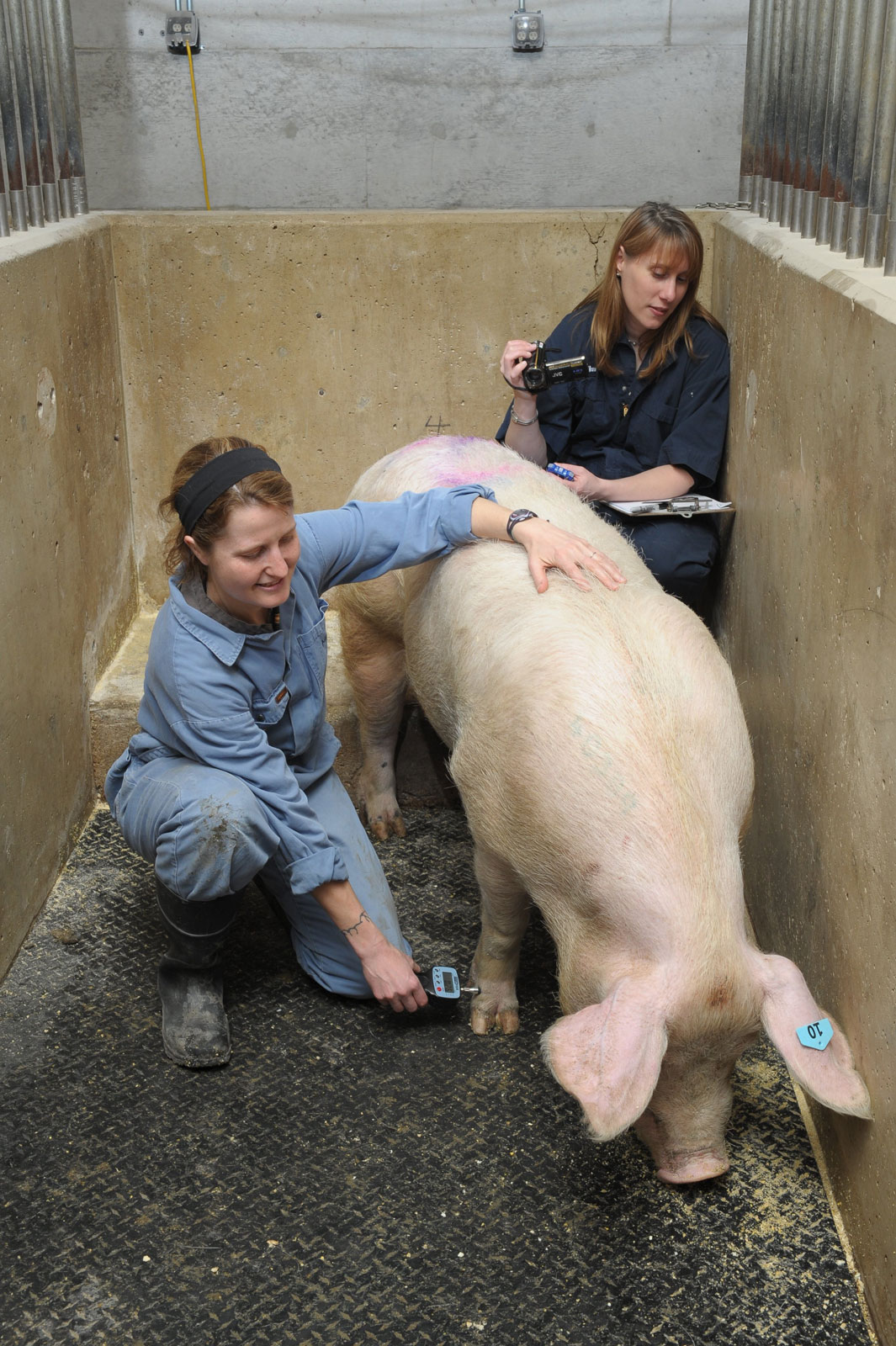
People Truly Are The Key To Animal Welfare Efforts
In addition to animal health, performance and productivity, animal welfare is an important component of livestock research at Iowa State University.
Anna Johnson, assistant professor of animal behavior and welfare in the Department of Animal Science, and Suzanne Millman, associate professor of animal welfare in the College of Veterinary Medicine, lead Iowa State’s animal welfare efforts.
While their research involves animals, Johnson says animal welfare depends on people.
“Animal welfare depends on the person looking after the animals. The caretakers are the key. The best facilities won’t matter if you don’t have the best people working there,” Johnson says. “Good animal welfare practices depend on experience and education.”
Their collaborative research is driven by issues facing the livestock industry, producers, veterinarians and their own curiosity.
“The concept of animal welfare involves both science and ethics. Often science is charged with solving the world’s problems, but we need to understand the underlying values,” Millman says. “Results from our research need to be weighed with other considerations like food safety, profitability, farm worker safety, etc. Our job is to provide options and it’s up to society, both producers and consumers, to decide what ones to take on.”
To help inform society on such issues Millman and Johnson find ways to ask animals what they prefer.
Millman and Johnson and their research crews video tape animals and analyze hours of footage noting movements and behaviors that indicate their discomfort or preferences. Subtle movements like ear flicking and head scratching or an animal’s withdraw response can indicate discomfort, and their pattern of movement or drinker use can provide clues to preferred systems design.
Their current studies include sow and bovine lameness; low stress handling; humane endpoints or euthanasia; systems design, such as pen size or use of hospital pens; eating and drinking behaviors; and animal discomfort during necessary procedures such as dehorning.
A lot of their work is with people.
Johnson and Millman have a strong outreach program with Iowa State University Extension livestock specialists, producers, veterinarians and others in the industry.
“We are a resource and sounding board for people” Millman says. “We want to let producers know what their options are and we have a sound commitment from producer groups and veterinarians in the state.”
They also handle a lot of calls from concerned citizens and media.
Together they host animal cruelty symposiums on campus for animal rescue leagues, law enforcement, producers, and veterinarians during which they cover Iowa code, warning signs of animal cruelty and developing a response plan.
In addition to their extension efforts, Millman and Johnson share their expertise with students. Millman coordinates animal welfare instruction within the veterinary curriculum, and teaches several animal science courses and components including advising an animal welfare judging team.
Johnson teaches a graduate course in animal welfare via the Internet and an undergraduate course on animal behavior and well-being involving pets and farm, zoo and laboratory animals within the department of animal science.



